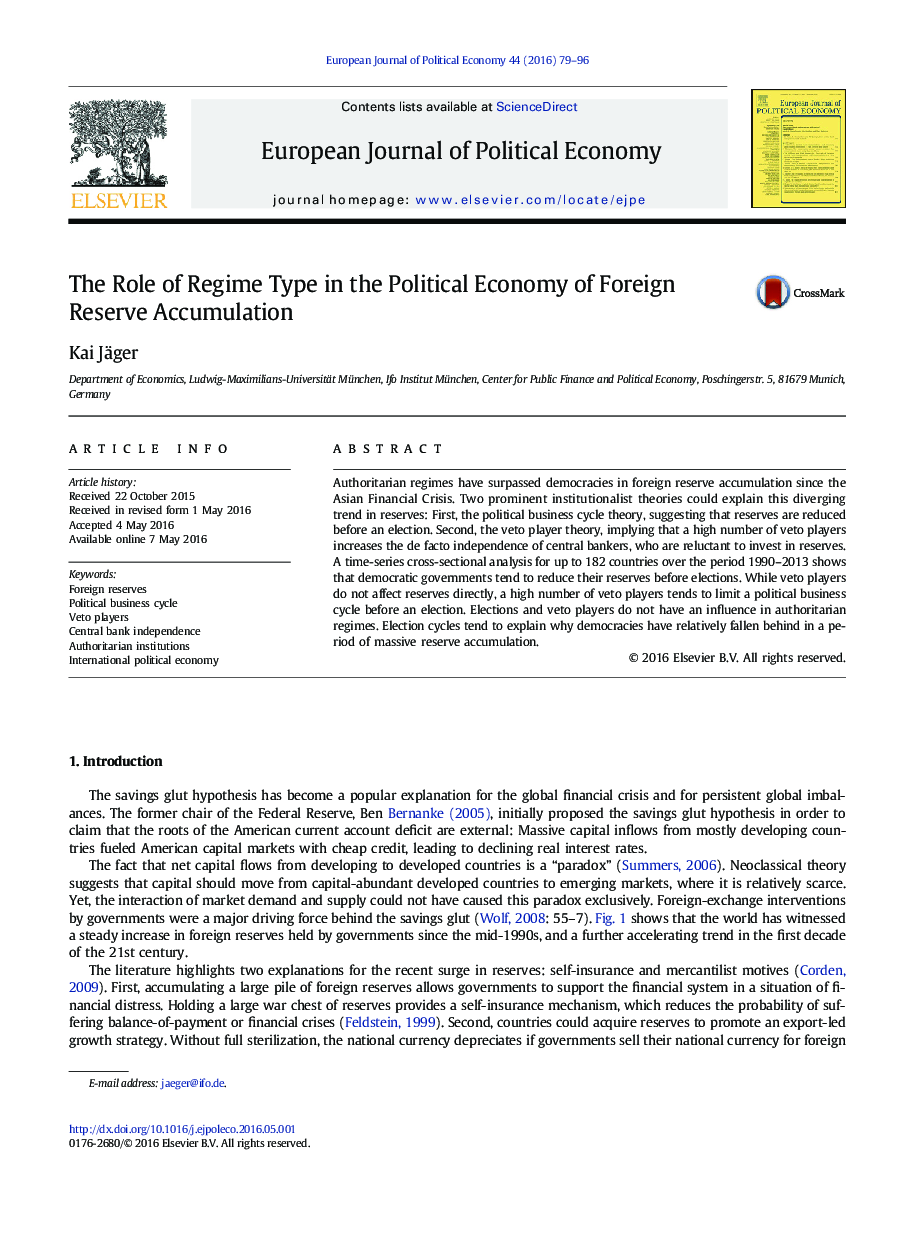| Article ID | Journal | Published Year | Pages | File Type |
|---|---|---|---|---|
| 5067870 | European Journal of Political Economy | 2016 | 18 Pages |
â¢Democracies tend to reduce reserves by 0.5-1% GDP before an election.â¢A high number of veto players thwarts a political business cycle before an election.â¢Central bank independence and veto players do not appear to affect reserves directly.â¢Political institutions do not appear to affect reserves in authoritarian regimes.â¢Election cycles tend to explain why democracies have fallen behind in reserves.
Authoritarian regimes have surpassed democracies in foreign reserve accumulation since the Asian Financial Crisis. Two prominent institutionalist theories could explain this diverging trend in reserves: First, the political business cycle theory, suggesting that reserves are reduced before an election. Second, the veto player theory, implying that a high number of veto players increases the de facto independence of central bankers, who are reluctant to invest in reserves. A time-series cross-sectional analysis for up to 182 countries over the period 1990-2013 shows that democratic governments tend to reduce their reserves before elections. While veto players do not affect reserves directly, a high number of veto players tends to limit a political business cycle before an election. Elections and veto players do not have an influence in authoritarian regimes. Election cycles tend to explain why democracies have relatively fallen behind in a period of massive reserve accumulation.
